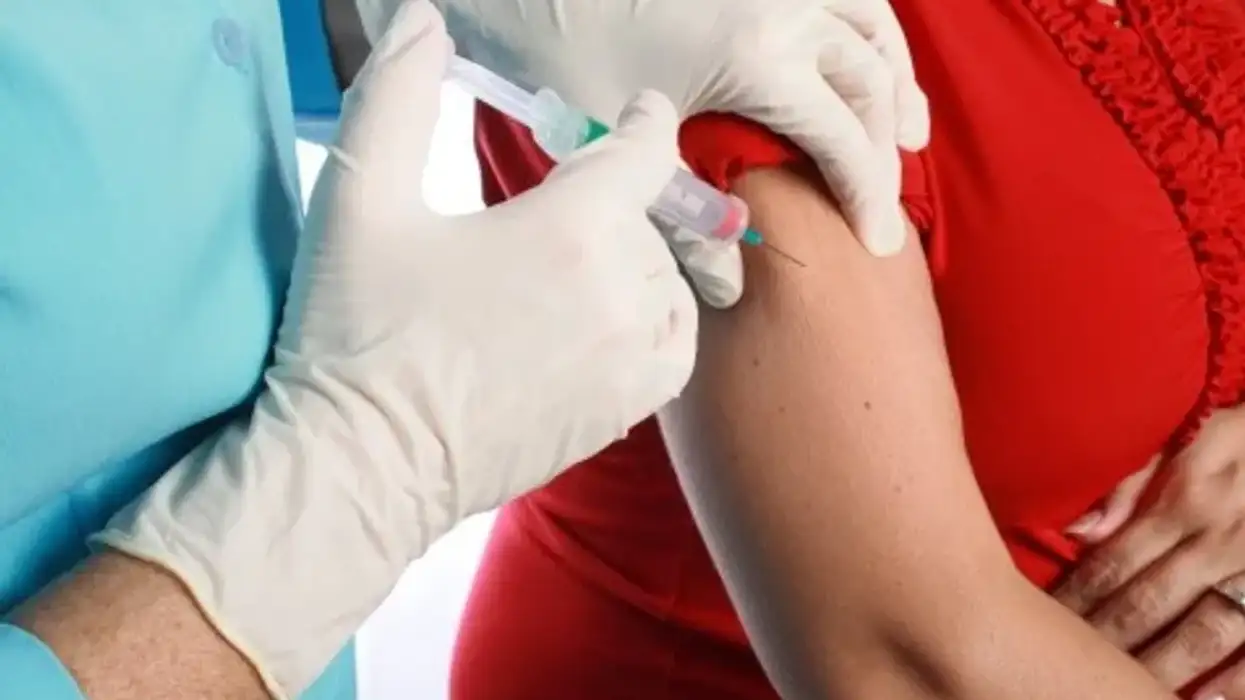Andrew Stephenson also highlighted three areas where cooperation between the government and the industry can be enhanced for better patient care
The only way to overcome the challenges facing the medicines supply chain in the UK is through close cooperation – the government, pharmacies, and the industry all working together in tandem – said Andrew Stephenson, Minister for Health and Social Care.
The MP for Pendle, Lancashire made the statement while addressing the Healthcare Distribution Association’s (HDA) Annual Conference at the Institute of Directors in Pall Mall, London on Thursday (25 January), where over 130 leaders from the pharma industry gathered.
As the keynote speaker, Stephenson acknowledged the crucial role wholesalers, manufacturers, and retail pharmacy chains, play in the wellbeing of the nation.
He said: “In the first few months that I've been in this job, it's become immediately obvious to me just how important this sector is and just how important the work that all of you do is for our country.”
“Four years on, I promise we in government, still remember how you all stepped up during the pandemic, ensuring vital life-saving supplies reached those who needed them, keeping your warehouses manned, when worker after worker called in sick, leaving no stone unturned to get medicines to hospitals, even in some cases, using taxis, if that's what it took.”
The health minister went on to say that he also understands how “cutthroat and competitive” the market can be, and how much pharmacists need a positive business environment with modern regulations.
“I understand the challenges you face. I know as you do. Medicine supply chains are complex, global, highly regulated, and vulnerable to a variety of factors,” Stephenson asserted.
"Being an island nation brings us safety, but it also brings with us great logistical challenges," he said, citing the impact of recent rocket attacks on commercial ships in the Gulf on vital supplies.
While the prime minister has taken decisive action to protect global maritime routes, he said his department was playing its part in protecting borders with a Target Operating Model “setting up new and better controls to protect the UK against biosecurity threats and creating a world-class border system for trade in goods.”
The minister also spoke about drug shortages, acknowledging that people are struggling to get hold of HRT, diabetes, and pain medication.
Ways to overcome these challenges
The minister gave three examples where cooperation between government, pharmacies, and industry can be enhanced for better patient care. These are:
- Improving data sharing
- Building and maintaining a thriving network of community pharmacies
- The Windsor Framework
[The Windsor Framework agreed by the UK and the EU establishes a set of arrangements to ease the movement of goods between Great Britain and Northern Ireland. A major part of the arrangements came into operation on 1 October 2023]
Elaborating on data sharing, he said: “The day-to-day intelligence you share helps us smooth irregularities out in supply chains, making it as seamless as possible for patients to get the medicines they need.”
Speaking about the second example, Stephenson the launch of Pharmacy First will allow community pharmacists to manage seven common conditions without a prescription from a GP.
“This will allow communities up and down the country to harness the full clinical knowledge and expertise of all our hard-working pharmacists, removing another barrier I know people face when accessing their medicines.”
“I know more needs to be done to support our pharmacy sector. And I will be working with my fellow ministers to ensure that we give them the support they need,” he commented.
He described the Windsor Framework as an “unprecedented deal” with friends in Europe that fully safeguards the supply chain of medicines into Northern Ireland.
Stephenson also announced that the MHRA will soon approve drugs to the whole UK market that will allow “every type of medicine to be supplied in single packs within UK supply chains with a single license for the entire United Kingdom and providing a long-term durable basis for medicine supplies into Northern Ireland.”
“I know there's more to be done. And I'm keen to continue to work with Martin Sawer and others in this room on green lanes and other issues that I know still need clarification.”
“But it's only through close and careful cooperation that we will get this right,” he added.
Factors that might slow down the sector's success
In his welcome speech, Martin Sawer, Executive Director of Healthcare Distribution Association (HDA), drew the health minister’s attention to some of the association's current concerns.
He said there a were key issues which if left uncontrolled might "mitigate against the continued and enduring success of the sector, which is slowly and imperceptibly becoming too ‘just-in-time’ perhaps."
One of them is community pharmacy funding, which he said “does not seem to be able to move with the times.”
Sawer underscored that a successful, vibrant and competitive community pharmacy sector is vital to the success of the medicines wholesale sector.
Sawer also said the sector's efficiencies are built on long-term investment, technologies, managing risks, and understanding customers.
Digitisation is playing a huge part in this efficiency drive, he said, while emphasising the need for regulations to keep up with progress.
“HDA is trying to move these issues along with the Department of Health, the MHRA, and the Home Office, but progress is painfully slow, I must say,” he said.
Furthermore, the sector needs the government's support for the transition to net zero, and it "does not need to be financial, although that would be nice!"
“We still require certainty regarding the charging infrastructure strategy, access to the national grid and incentives for early adopters, along with regulatory flexibilities around the transportation of ambient medicines in a moderate climate to deliver the goals of the NHS," Sawer continued.
Speaking about employment issues, he said that the quality of available staff for their sector has declined since Brexit and COVID.
“Our businesses would like to be able to qualify for Apprenticeship Levy Funding – we pay into this pot, but do not qualify for funding,” he told the health minister.
The HDA and its members welcomed the Windsor Framework as a “pragmatic regulatory solution to ensuring the continued supply of medicines from Great Britain to Northern Ireland.”
In October this year the proposed Green Line for goods crossing the Irish Sea will come into force, but Sawer said his members were already facing some serious challenges with medical feeds that fall under Defra’s SPS regime.
“Our members do not want to reduce supply to Northern Ireland of these slower-moving lines of medical products, not routinely stocked in Belfast, but these could become uneconomic to distribute with extra checks and declarations,” he added.















